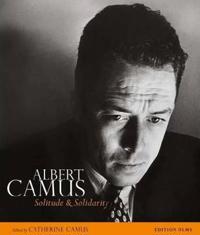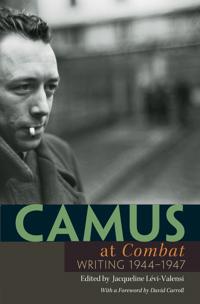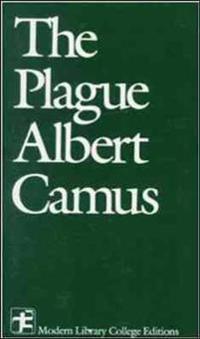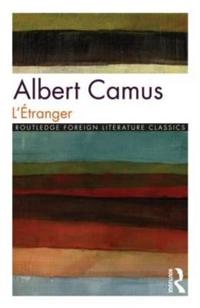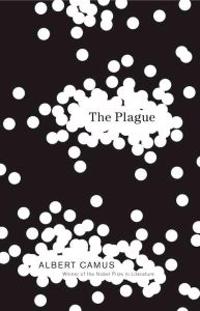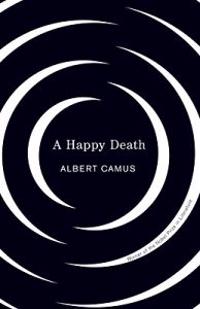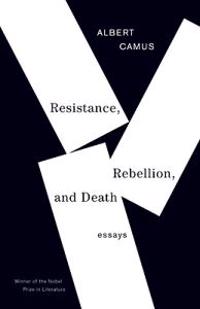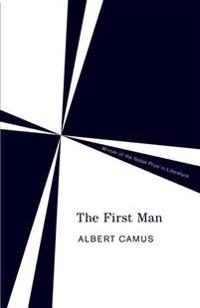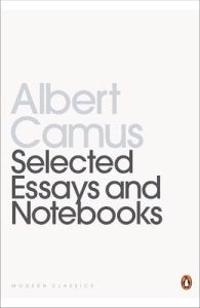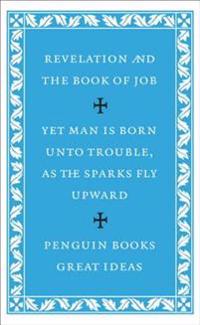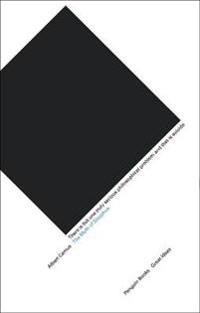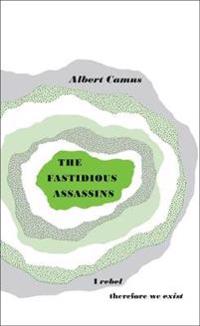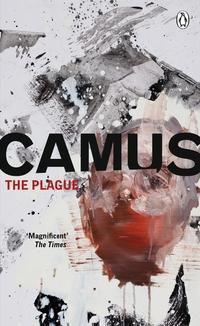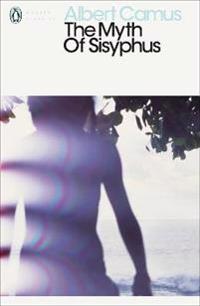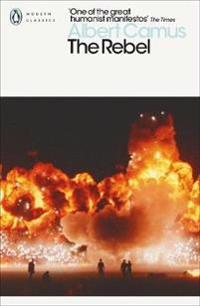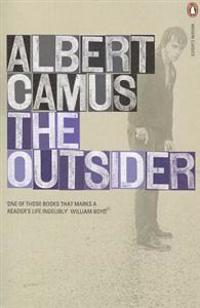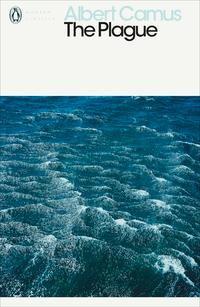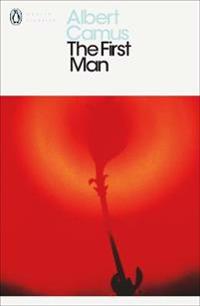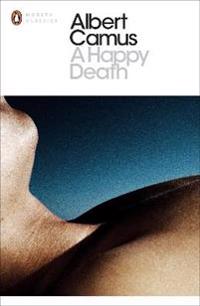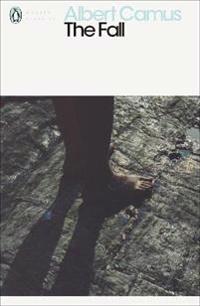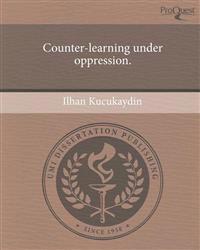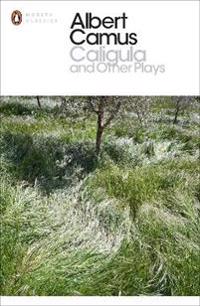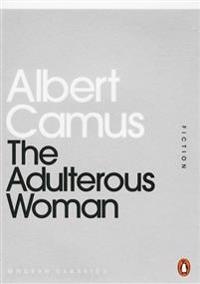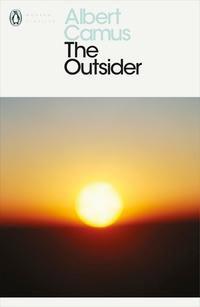Albert Camus (Inbunden)
avCatherine Camus, Marcelle Mahasela, Albert Camus
ISBN: 9783283011888 - UTGIVEN: 201112Camus at "Combat" (Häftad)
avAlbert Camus
ISBN: 9780691133768 - UTGIVEN: 200708Paris is firing all its ammunition into the August night. Against a vast backdrop of water and stone, on both sides of a river awash with history, freedom's barricades are once again being erected. Once again justice must be redeemed with men's blood. Albert Camus (1913-1960) wrote these words in Au[...]
Plague (Pocket)
avAlbert Camus, Stuart Gilbert, Albert Camus
ISBN: 9780075536499 - UTGIVEN: 196506Chaos prevails when the bubonic plague strikes the Algerian coastal city of Oran.
L'Etranger (Pocket)
avAlbert Camus, Ray (EDT) Davison, Albert Camus
ISBN: 9780415025867 - UTGIVEN: 1993-04L'Etranger has the force and fascination of myth. The outwardly simple narrative of an office clerk who kills an Arab, 'a cause du soleil', and finds himself condemned to death for moral insensibility becomes, in Camus's hands, a powerful image of modern man's impatience before Christian philosophy [...]
The Plague (Pocket)
avAlbert Camus, Stuart Gilbert, Albert Camus
ISBN: 9780679720218 - UTGIVEN: 199105A haunting tale of human resilience in the face of unrelieved horror, Camus' novel about a bubonic plague ravaging the people of a North African coastal town is a classic of twentieth-century literature.[...]
A Happy Death (Pocket)
avAlbert Camus, Richard Howard, Albert Camus
ISBN: 9780679764007 - UTGIVEN: 199509In his first novel, A Happy Death, written when he was in his early twenties and retrieved from his private papers following his death in I960, Albert Camus laid the foundation for The Stranger, focusing in both works on an Algerian clerk who kills a man in cold blood. But he also revealed himself t[...]
Resistance, Rebellion, and Death (Pocket)
avAlbert Camus, Justin O'Brien, Albert Camus
ISBN: 9780679764014 - UTGIVEN: 199509The First Man (Häftad)
avAlbert Camus, Catherine Camus
ISBN: 9780679768166 - UTGIVEN: 199608Camus tells the story of Jacques Cormery, a boy who lived a life much like his own. Camus summons up the sights, sounds and textures of a childhood circumscribed by poverty and a father's death yet redeemed by the austere beauty of Algeria and the boy's attachment to his nearly deaf-mute mother. Pub[...]
L'Etranger (Häftad)
avAlbert Camus
ISBN: 9780135307908 - UTGIVEN: 1955-12The Stranger, unabridged.
Selected Essays and Notebooks (Storpocket)
avAlbert Camus
ISBN: 9780140180244 - UTGIVEN: 198906This is a selection from his essays. Lyrical and Critical, and from his private notebooks aims to present Camus as a writer and literary critic, as well as Camus the individual.[...]
The Revelation of St John the Divine and the Book of Job (Pocket)
avVoltaire, Albert Camus, David Hume
ISBN: 9780141023854 - UTGIVEN: 200508Throughout history, some books have changed the world. They have transformed the way we see ourselves - and each other. They have inspired debate, dissent, war and revolution. They have enlightened, outraged, provoked and comforted. They have enriched lives - and destroyed them. Now Penguin brings y[...]
The Myth of Sisyphus (Pocket)
avAlbert Camus
ISBN: 9780141023991 - UTGIVEN: 200508Throughout history, some books have changed the world. They have transformed the way we see ourselves - and each other. They have inspired debate, dissent, war and revolution. They have enlightened, outraged, provoked and comforted. They have enriched lives - and destroyed them. Now Penguin brings y[...]
The Fastidious Assassins (Pocket)
avAlbert Camus
ISBN: 9780141036625 - UTGIVEN: 2008-08A daring critique of communism and how it had gone wrong behind the Iron Curtain, Camus' essay examines the revolutions in France and Russia, and argues that since they were both guilty of producing tyranny and corruption, hope for the future lies only in revolt without revolution. Throughout histor[...]
The Plague (Häftad)
avAlbert Camus
ISBN: 9780141049236 - UTGIVEN: 201007'On the morning of April 16, Dr Rieux emerged from his consulting-room and came across a dead rat in the middle of the landing'. It starts with the rats. Vomiting blood, they die in their hundreds, then in their thousands. When the rats are all gone, the citizens begin to fall sick. Like the rats, t[...]
The Myth of Sisyphus (Storpocket)
avAlbert Camus
ISBN: 9780141182001 - UTGIVEN: 200003Written during the bleakest days of the Second World War, this volume argues for an acceptance of reality that encompasses revolt, passion and, above all, liberty. It also contains several other essays, including lyrical evocations of the sunlit cities of Algiers and Oran, and the settings of other [...]
The Rebel (Storpocket)
avAlbert Camus
ISBN: 9780141182018 - UTGIVEN: 200012"The Rebel" is Camus's attempt to understand the time 'I live in' and a brilliant essay on the nature of human revolt. Published in 1951, it makes a daring critique of communism, how it had gone wrong behind the Iron Curtain, and the resulting totalitarian regimes. It questions two events held sacre[...]
The Outsider (Storpocket)
avAlbert Camus
ISBN: 9780141182506 - UTGIVEN: 200002A peerless work of philosophical fiction that is as shocking today as when it was first published, the "Penguin Modern Classics" edition of Albert Camus' "The Outsider" is translated by Joseph Laredo. Meursault will not pretend. After the death of his mother, everyone is shocked when he shows no sad[...]
The Plague (Storpocket)
avAlbert Camus
ISBN: 9780141185132 - UTGIVEN: 200212The Plague is Albert Camus' world-renowned fable of fear and courage. The townspeople of Oran are in the grip of a deadly plague, which condemns its victims to a swift and horrifying death. Fear, isolation and claustrophobia follow as they are forced into quarantine. Each person responds in their ow[...]
The First Man (Storpocket)
avAlbert Camus
ISBN: 9780141185231 - UTGIVEN: 200112The unfinished manuscript of "The First Man" was discovered in the wreckage of car accident in which Camus died in 1960. Although it was not published for over thirty years, it was an instant bestseller when it finally appeared in 1994. The first man' is Jacques Cormery, whose poverty-stricken child[...]
A Happy Death (Storpocket)
avAlbert Camus
ISBN: 9780141186580 - UTGIVEN: 200202Is it possible to die a happy death? This is the central question of Camus' astonishing early novel, published posthumously and greeted as a major literary event. It tells the story of a young Algerian, Mersault, who defies society's rules by committing a murder and escaping punishment, then experim[...]
The Fall (Storpocket)
avAlbert Camus
ISBN: 9780141187945 - UTGIVEN: 200607Jean-Baptiste Clamence is a soul in turmoil. Over several drunken nights he regales a chance acquaintance with his story. From this successful former lawyer and seemingly model citizen a compelling, self-loathing catalogue of guilt, hypocrisy and alienation pours forth. "The Fall" (1956) is a brilli[...]
Exile and the Kingdom (Storpocket)
avAlbert Camus
ISBN: 9780141188256 - UTGIVEN: 2006-07The stories of "Exile and the Kingdom" explore the dilemma of being an outsider - even in one's own country - and of allegiance. With intense power and lyricism, Camus evokes beautiful but harsh landscapes, whether the shimmering deserts of his native Algeria or the wild, mysterious jungles of Brazi[...]
Caligula and Other Plays (Storpocket)
avAlbert Camus, Stuart Gilbert
ISBN: 9780141188706 - UTGIVEN: 200607"Caligula" reveals some aspects of the existential notion of the absurd' by portraying an emperor so mighty and so desperate in his search for freedom that he inevitably destroys gods, men and himself. The dramatic impetus of "Cross Purpose", however, comes from the tension between consent to and re[...]
The Adulterous Woman (Häftad)
avAlbert Camus
ISBN: 9780141195841 - UTGIVEN: 201102She was waiting, but she didn't know for what. She was aware only of her solitude, and of the penetrating cold, and of a greater weight in the region of her heart.' Camus' writing confronts the great philosophical dilemmas of our time with piercing clarity. These three powerful and evocative stories[...]
The Outsider (Häftad)
avAlbert Camus
ISBN: 9780141198064 - UTGIVEN: 2013-10'My mother died today. Or maybe yesterday, I don't know.' In The Outsider (1942), his classic existentialist novel, Camus explores the alienation of an individual who refuses to conform to social norms. Meursault, his anti-hero, will not lie. When his mother dies, he refuses to show his emotions sim[...]

